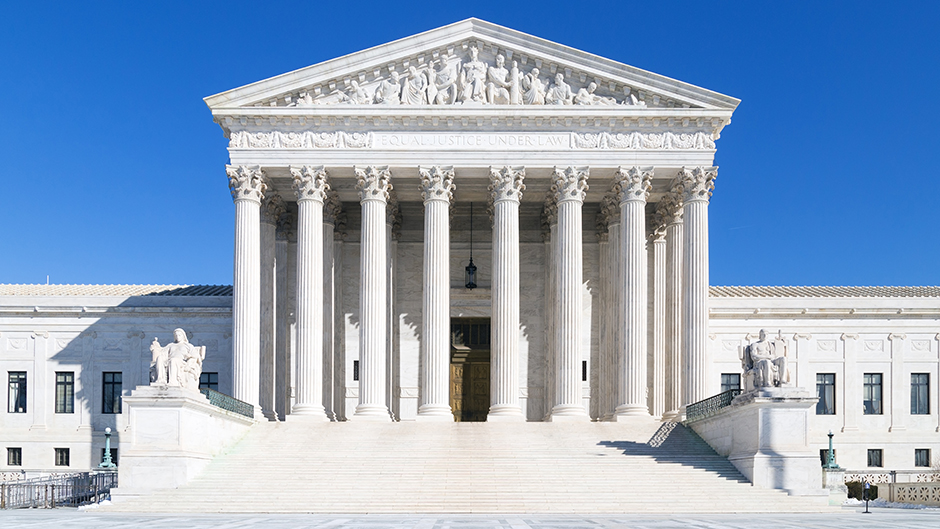Miami Law’s Immigration Clinic has filed a U.S. Supreme Court amicus brief as counsel of record for the American Immigration Lawyers Association in Patel v. Garland — a case that will decide the scope of a key judicial review provision of the Immigration and Nationality Act. The American Immigration Lawyers Association is the country’s foremost immigration bar association, with more than 15,000 members throughout the United States and abroad, including lawyers and law school professors who practice and teach in the field of immigration and nationality law.
The Patel case is before the high court after the U.S. Court of Appeals for the 11th Circuit, sitting en banc, adopted a sweeping interpretation of the jurisdictional provision that blocks all judicial review of questions relating to a wide range of applications for discretionary immigration relief from deportation. The 11th Circuit is the only appellate court in the country to take such a restrictive reading.
“Many lives hang in the balance,” said Romy Lerner, associate director of the Immigration Clinic and counsel of record on the amicus brief. “Our brief makes real the devastating consequences of the 11th Circuit’s flawed reading of the jurisdictional provision. If the 11th Circuit’s decision is allowed to stand, numerous individuals, including doctors working on the front lines of the COVID-19 pandemic, survivors of domestic violence, and non-citizens living with U.S citizen spouses, children, and parents will face deportation even if the immigration agency’s decision was flawed.”
Lerner co-authored the brief with Rebecca Sharpless, director of the Immigration Clinic, and Maureen Sweeney, law school professor and director of the Chacon Center for Immigrant Justice at the University of Maryland Francis King Carey School of Law. The petitioners in the case, Pankajumar S. Patel and his family, are represented by the law firm of Ira Kurzban, a prominent immigration lawyer who teaches courses in immigration law at Miami Law. Elizabeth Montano, J.D. ’19, a former immigration clinic intern and law firm associate of Kurzban, is also working on the case.
Clinic students Abbey Schultz, Benjamin Brooks, Dora Haque, and Daniel Valentin, all 2Ls, helped edit the amicus brief.
“This was the first time I ever assisted lawyers with an amicus brief, and I was nervous about it because it was going to the U.S. Supreme Court, and I knew it had to be perfect,” said Schultz. “But working on the brief ended up being fun and incredibly worthwhile. What a great learning experience. It was only by working on the brief with the professors and fellow students that I realized what’s a stake for so many people if the Supreme Court upholds the lower court’s decision.”
The jurisdictional statute at issue in the case, 8 U.S.C. § 1252(a)(2)(B)(i), was enacted in 1996 as part of Congress’s overhaul of immigration law. The provision states that no court has jurisdiction to review “any judgment regarding the granting of” certain discretionary applications, such as an application for lawful permanent residency. The immigration clinic argues that “judgment” refers to the ultimate discretionary decision to grant or deny an application and not to decisions about whether an applicant has met the threshold eligibility requirements. Congress, the clinic contends, did not intend for federal courts to abdicate their critical role in correcting immigration agency errors relating to eligibility for discretionary relief.
The court is expected to hear oral argument on the case in December.
Read more about Miami Law’s Immigration Law Program
Read more about Miami Law’s Immigration Clinic

